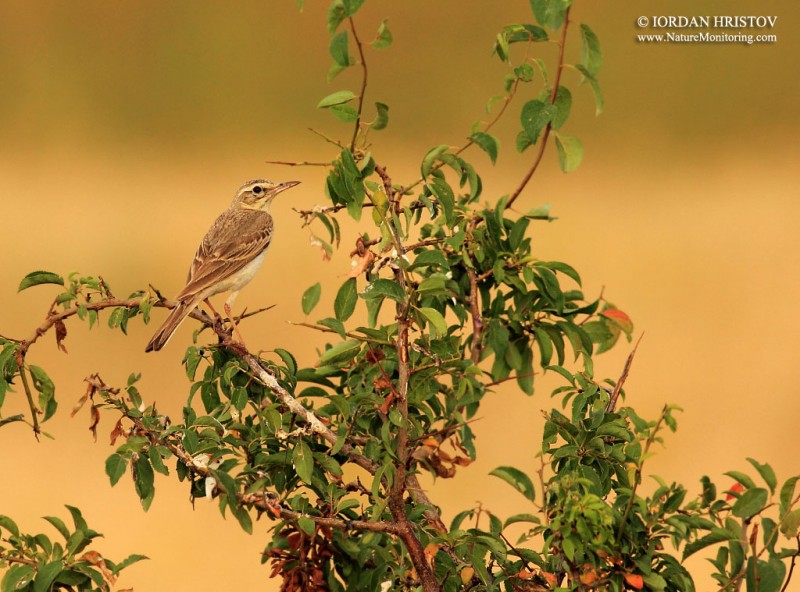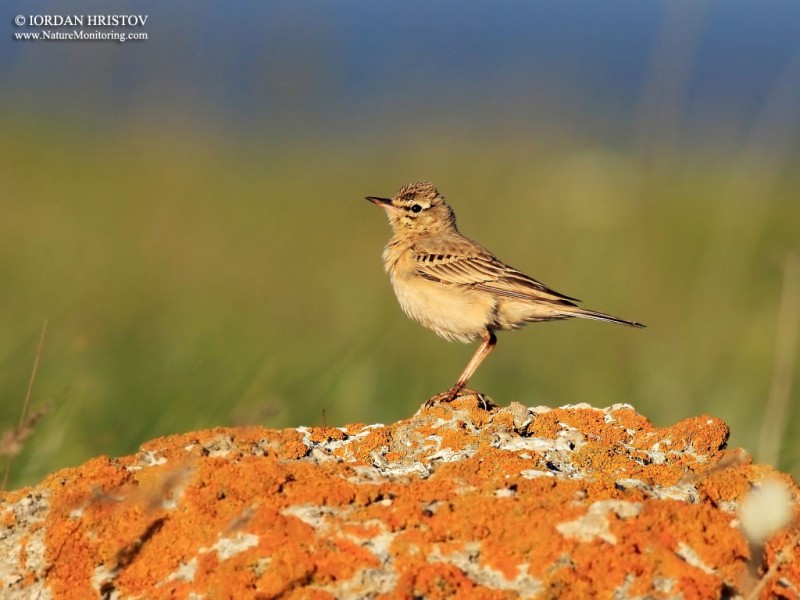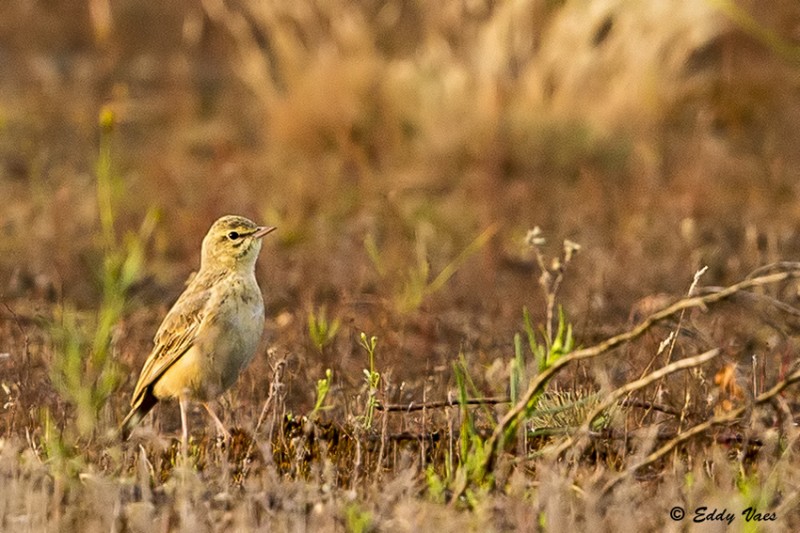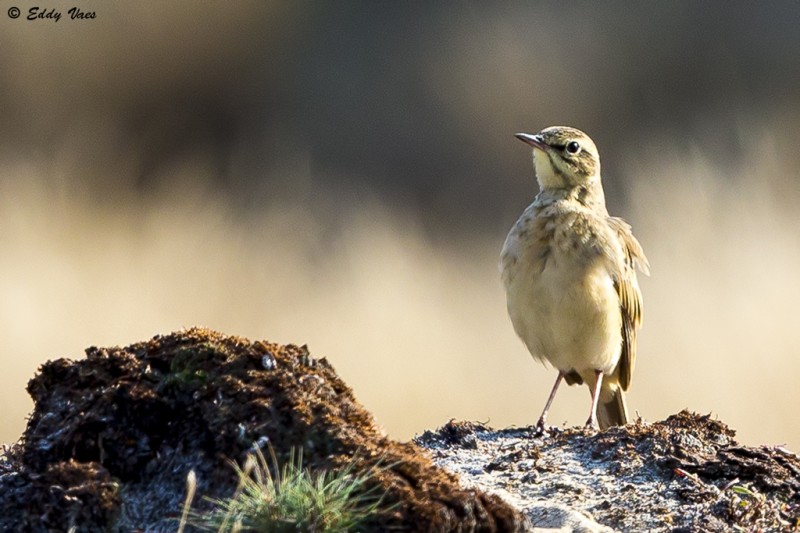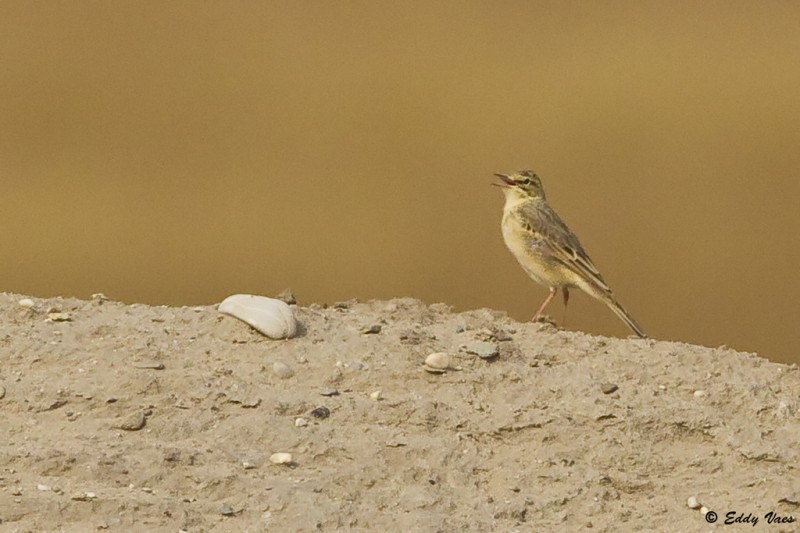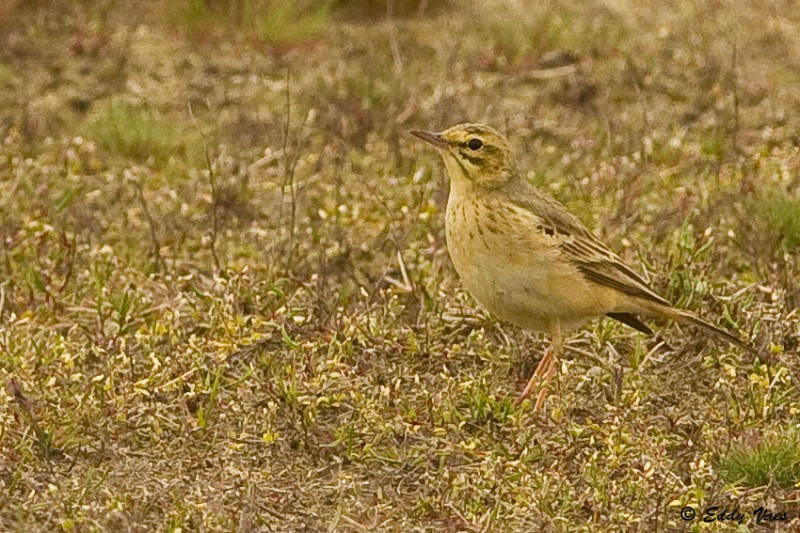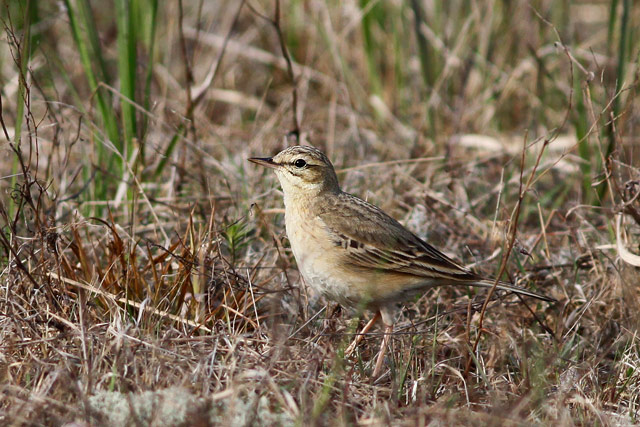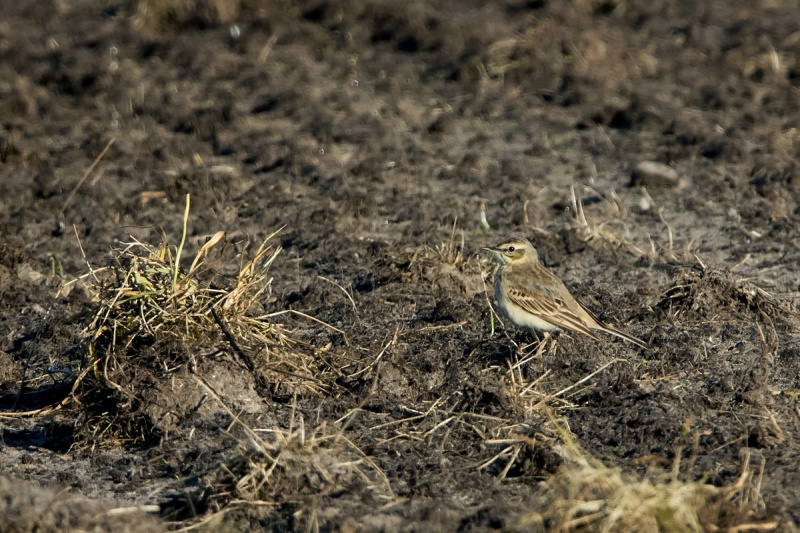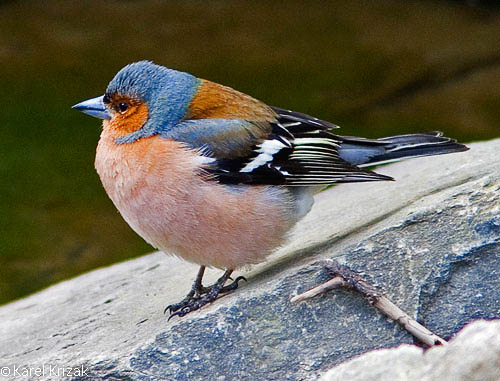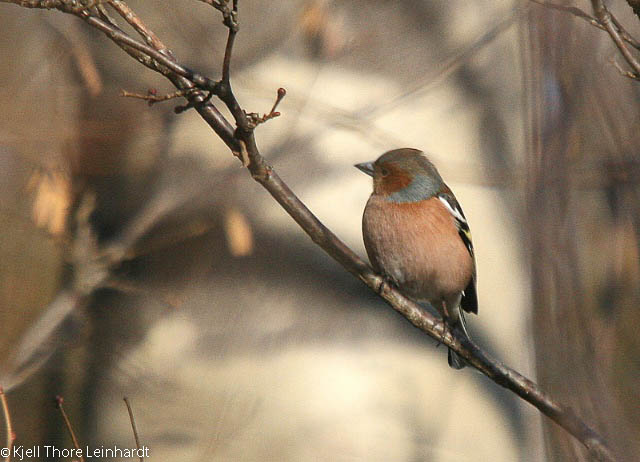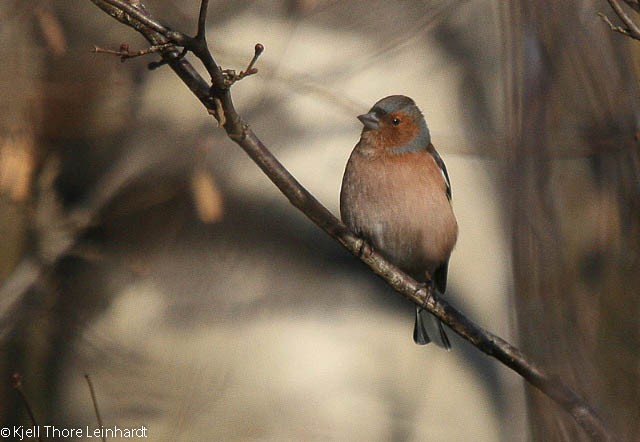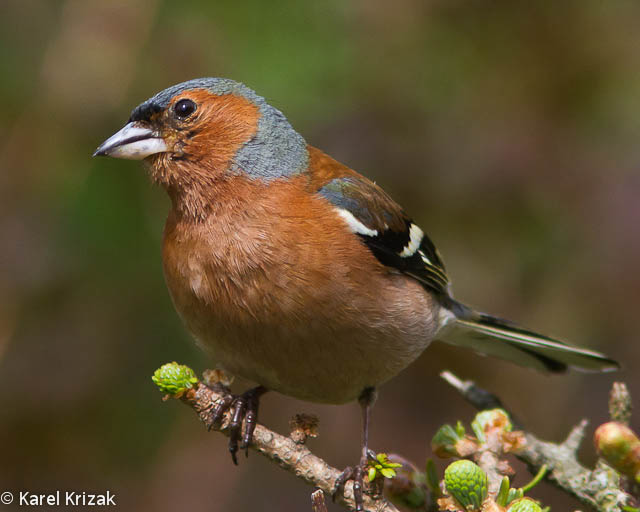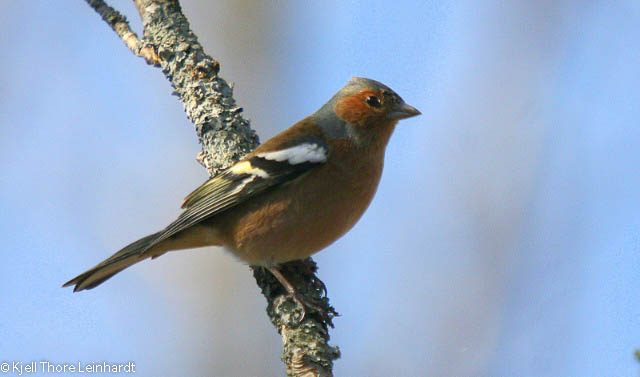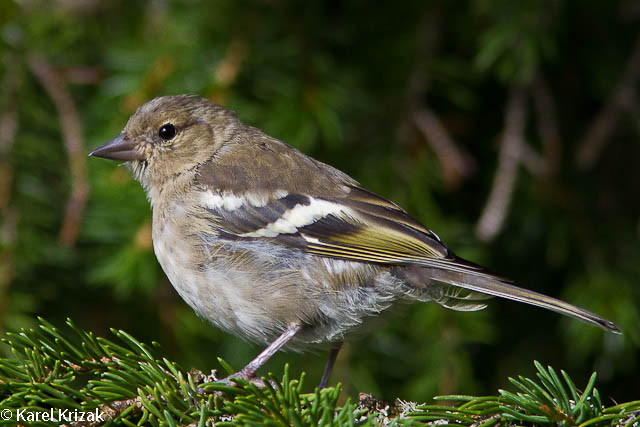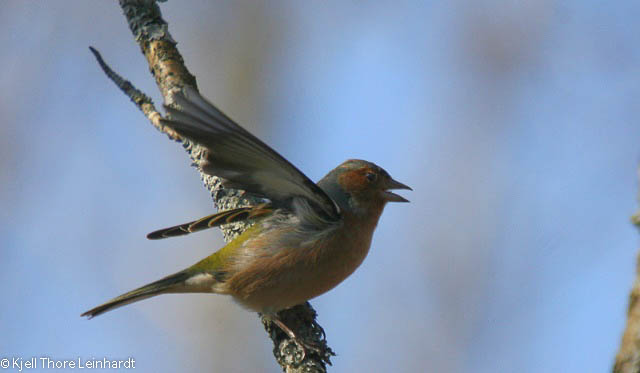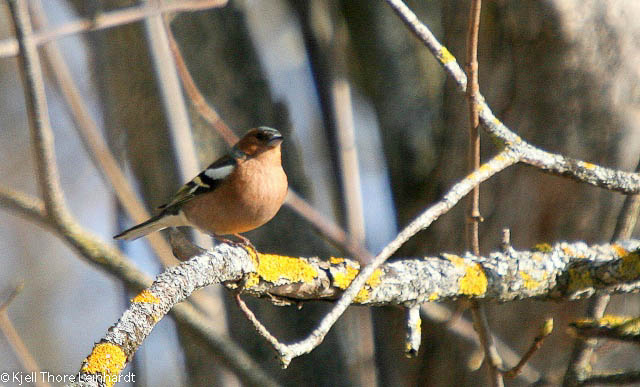Tawny Pipit (Anthus campestris)
Chaffinch (Fringilla coelebs)
Large, but slender and long-legged pipit recalling wagtail in build. Easily confused with Richard's Pipit, but differs in dark lores, almost unstreaked breast, short hind-claw, slender body and thinner bill. The thin moustache-stripe combined with the dark lores stands out from the otherwise pale head. Greater coverts with dark centres and pale fringes are the most contrasting part of the body. Tertials are fringed warm brown. Tail with broad white edges. Immatures are more streaked above and on breast and sometimes flanks, but lore dark as in adults. Flight wagtail-like and less powerful than Richard's Pipit. Stance less upright, with wagtail-like gait.
Sound:Song simple. Consists of three notes merged in a short, continuous and ringing "tsee-ro-ee", given every 1-2 seconds. Timbre is wagtail-like and intonation variable, but consistent in each song. Flight call similar in timbre, like a cross between Yellow Wagtail and House Sparrow (song). Thinner and more wagtail-like than Richard's Pipit.
Song:
Distribution:
Xeno-canto: map
Ecology:Birdlife ecology
Links:
Observation.org Latest observations
Image search Flickr NB! May give other species
CCDistinguished in all plumages by double wing-bars and white outer tail feathers. Male easily recognized by slate grey crown and nape, and pinkish face and underparts. Female with greyish green upperparts and whitish underparts. A long-tailed finch with peaked head. Appears more elegant in flight than other finches. Tripping gait when on ground.
Sound:Song a falling 5 sec. phrase "zitt-zitt-chep-chepp-chu-chu-churrurrwitt". Structurally similar to Willow Warbler, but with a conclusive, ascending and accented ending, and with a much harder, finch-like, timbre.
Song:
Distribution:
Wikipedia: map (se also Xeno-canto below)
Ecology:Birdlife ecology
Links:
Observation.org Latest observations
Image search Flickr NB! May give other species
CC
 English
English Albanian
Albanian
 Armenian
Armenian
 Bulgarian
Bulgarian
 Catalan
Catalan
 Croatian
Croatian
 Czech
Czech
 Danish
Danish
 Dutch
Dutch
 Finnish
Finnish
 French
French
 Georgian
Georgian
 German
German
 Greek
Greek
 Hungarian
Hungarian
 Italian
Italian
 Latvian
Latvian
 Lithuanian
Lithuanian
 Macedonian
Macedonian
 Norwegian
Norwegian
 Polish
Polish
 Portuguese
Portuguese
 Romanian
Romanian
 Russian
Russian
 Sami : Lule sami
Sami : Lule sami
 Sami : North sami
Sami : North sami
 Sami : South sami
Sami : South sami
 Scientific names
Scientific names
 Serbian
Serbian
 Spanish
Spanish
 Swedish
Swedish
 Ukrainian
Ukrainian


